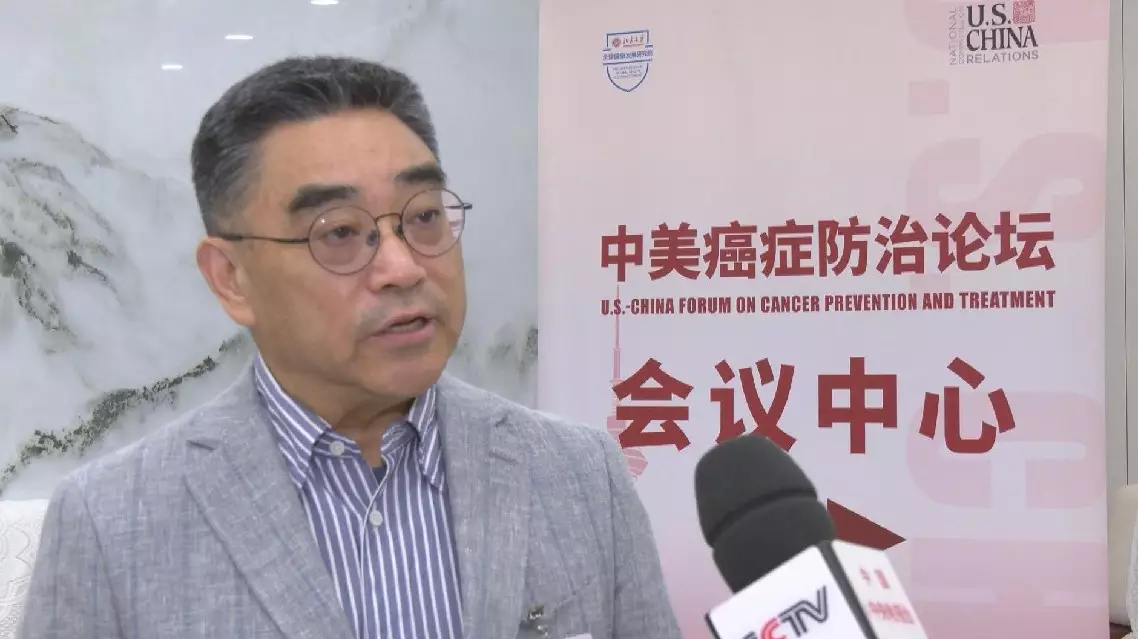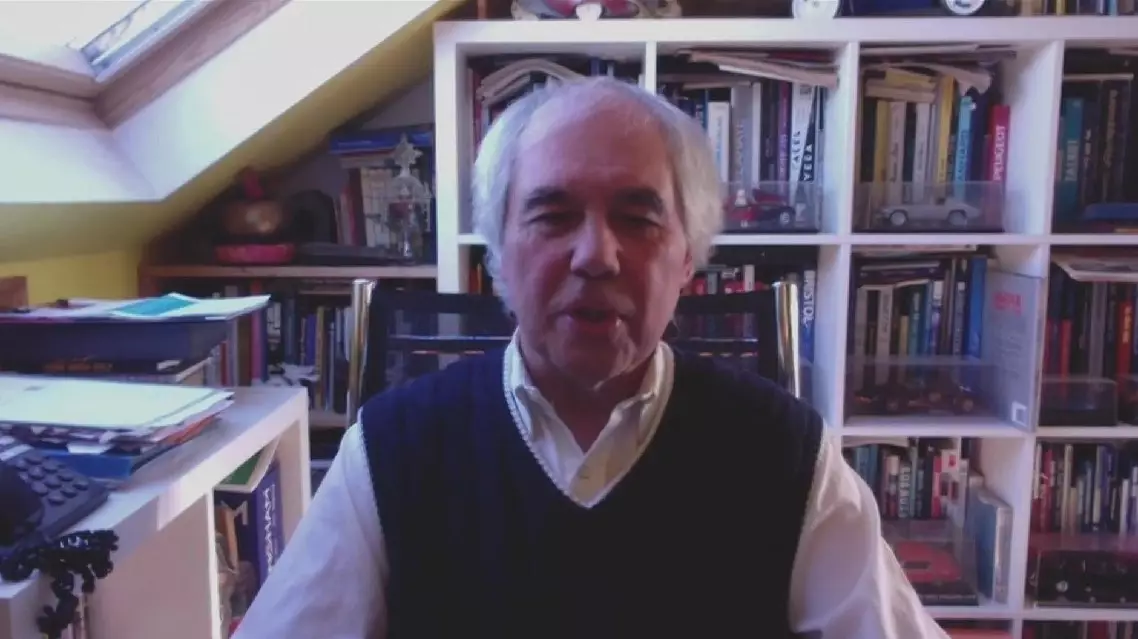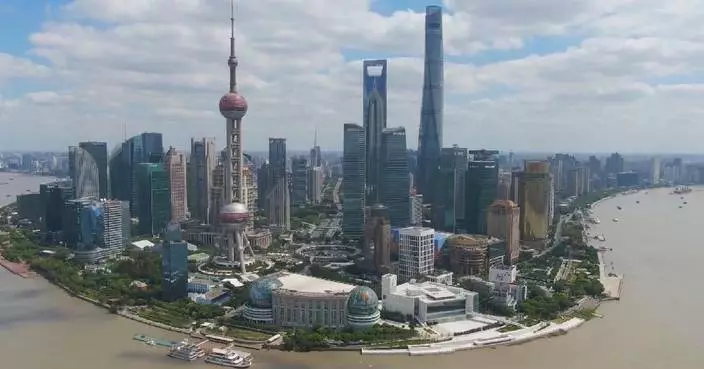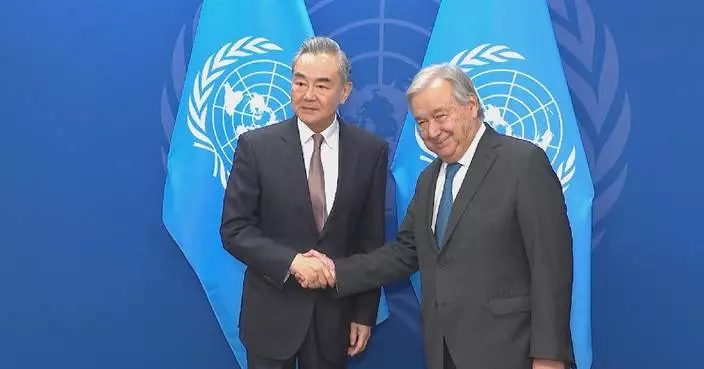The U.S.-China Forum on Cancer Prevention and Treatment was held in north China's Tianjin Municipality on Tuesday, bringing together experts in the fields of oncology, public health and policy making to explore into China-U.S. cooperation on the prevention and treatment of cancer.
The one-day forum, co-organized by Peking University (PKU) Institute for Global Health and Development and National Committee on U.S.-China Relations, took place right after the two-day U.S.-China Track II Dialogue on Healthcare, which concluded also in Tianjin on Monday.
Medical specialists at the event underscored the rich resources and experience that China and the U.S. possess in cancer research and prevention, emphasizing that deepening collaboration in this domain could provide valuable insights for global cancer control efforts.
For years, advancements in areas such as causal prevention, screening, early diagnosis, comprehensive treatment, and precision medicine have significantly improved the cure rates for malignant tumors.
However, the interweaving of various factors has rendered the landscape of cancer prevention and control complex and formidable.
At the event, experts asserted that cancer prevention and treatment represent a promising area for China-U.S. cooperation. Facilitating clinical trials for anticancer drugs, aligning evaluation and approval standards, and achieving mutual recognition of data could play a crucial role in reducing the research and development costs and market prices of life-saving medications for cancer.
"There is huge room for cooperation between China and the United States in the field of cancer prevention and control. In terms of providing a platform for population clinical trials, our advantages are still very strong. Therefore, if China and the United States can continue to cooperate in the field of oncology, it will definitely be beneficial to the health of the Chinese and American people," said Liu Guoen, director of PKU China Center for Health Economic Research, in an interview with China Central Television on the sidelines of the forum.

U.S.-China Forum on Cancer Prevention and Treatment held in north China's Tianjin
The U.S. government's decision to hike tariffs on Chinese imports, from electric vehicles (EVs) and lithium-ion batteries to photovoltaic solar cells, is aimed at "buying time" for America's own industries that have lagged behind their Chinese counterparts both in technology and performance in the global market, according to an automotive analyst based in Cardiff, the United Kingdom.
Paul Nieuwenhuis, co-director of the Center for Automotive Industry Research at the Cardiff Business School, shared his viewpoints on Friday with the China Global Television Network (CGTN) on what motivated the U.S. protectionist move and how the tariff hikes will affect China's efforts to make further inroads into the Western market going forward.
Despite China's strong opposition and warning of the implications on bilateral trade ties, the Office of the U.S. Trade Representative finalized its plan two weeks ago to raise tariffs on a slew of strategic goods made in China, largely adopting hikes it first proposed in May this year. The heightened tariffs include a 100-percent tariff on EVs, a 25-percent tariff on lithium-ion batteries, and a 50-percent tariff on photovoltaic solar cells, with the first set going into effect on Friday.
Nieuwenhuis said the U.S. had a head start in making EVs but has eventually found itself playing catch up with more advanced Chinese technology in recent years, which has prompted its decision to adopt the suppressive trade measures.
"There is a strong political angle to this, of course. The U.S. car industry has, in a sense, been caught out. They found that for many years it was more profitable to make big pickup trucks and SUVs, and they made a lot of money on them. And they knew that if they went for electric vehicles, they would not make much money. But of course, ironically, the first modern credible electric vehicle was the General Motors EV1 in the 1990s. With this, they've moved on from that and they've now been caught out by what China has been doing. So, I think that's the key thing really here -- to buy them time. They do have the expertise, but they need to ramp up and they have to make sure that they can retain their profit margins, because at the moment that would be challenging, I think, [with] the current technology. And this is where they are really worried about the Chinese," the analyst said.
However, unlike a few decades ago when the U.S. also took protectionist measures against Japanese automakers, the country faces a much bigger challenge in shoring up its own car makers this time around, Nieuwenhuis said.
"I think this is its primary role -- to encourage them to invest domestically. And we saw the same when the Japanese first came in, and quotas were introduced, rather than tariffs. That gave European manufacturers and American manufactures some breathing space, and they were able to catch up, in that case, with Japanese manufacturing methods and quality standards. In this case, it's a fundamental technological problem and also doing the new technology profitably -- that is a real challenge for the Western industry," he said.
On the U.S. tariff hikes' impact on EVs and other goods made in China, the analyst believes that Chinese EVs still retain the edge to break deeper into the European and North America markets.
"If you asked this question three or four years ago, I would have said, well, they were not internationally competitive. But that's changed very, very rapidly and we now see them in Europe, as you said and there, people are generally impressed with them. The challenge for them is going to be digging in North America to build a dealer network," Nieuwenhuis said.

US wants to "buy time" for domestic industries with tariffs hikes on China: analyst










